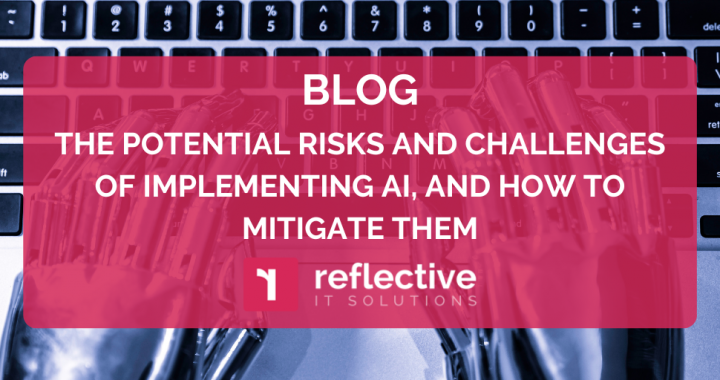Artificial Intelligence has earned an integral role in businesses across almost all industries and sectors, and it isn’t hard to understand why. Thanks to its ability to deliver impressive data analytics, automate essential processes, and ultimately boost productivity and efficiency, AI technologies are now seen as essential for any organisation hoping to stay abreast of the competition.
AI Risks and Challenges
However, there are also certain factors which must be taken into consideration before an AI migration. AI risks and challenges include the dangers posed by insufficient data security protocols, which can threaten an organisation with the chance of a devastating data breach as this information is collected, processed, and stored. There is also the need to be mindful of granting AI technology access to certain data, which can lead to a conflict with data security and privacy compliance, should the AI tech parent company reserve the right to draw on clients’ data for training purposes.
And, when it comes to this training data, it’s also important to understand that any biases found in the data that the technology has used to “learn” could subsequently influence the results it produces. Last but not least, there are also concerns that the increasingly sophisticated software could replace human jobs, which has wide-ranging ethical and social implications. Indeed, the ethical implications of AI are such that it is likely to have a significant effect on our society, as well as the way in which we make decisions in the workplace.
AI Mitigation Strategies
This means that any organisation hoping to get the right results from their AI implementation should be sure to take a number of steps to mitigate these risks. Clearly, one overarching approach is to prioritise AI security measures, such as the highest level of data encryption, and to implement carefully designed access control protocols to ensure that only certain parties may be able to work with the most sensitive data and files. Data minimisation policies are also a key part of ensuring data privacy in AI, and staff will likely need fresh training to ensure that compliance with GDPR regulations is maintained when the new technology is in use.
And in addition to training, taking a proactive approach is the surest way to maintain AI security. Choosing multi-factor authentication and regularly reviewing who has the authorisation to access sensitive data is vital, with similar scrutiny as to which systems can use it. This is essential in ensuring that staff are accessing business files only through approved and secured devices. Proactive threat monitoring and response are also essential. Happily, there are advanced AI tools which can help in these areas, too, although security teams should be careful to review and act on all indications of potential vulnerabilities within the AI system.
Finally, businesses should be mindful of the ethical implications of adopting this technology. They will need to work to assuage any concerns that their staff may have by fostering a transparent and fair approach, with accountability for any restructuring decisions taken on the basis of introducing AI tools.
Ensure A Smooth Transition
To be sure of gaining the best results from adopting the latest technologies, the smartest route is to partner with a specialist. Reflective IT are experts in this area and can support your business in creating its ideal AI mitigation strategies. From ensuring that your organisation has the right AI security measures in place to helping you navigate the ethical implications of AI, we can guide you at every step along the way. Why not find out more about our services today, at www.reflectiveit.com.










